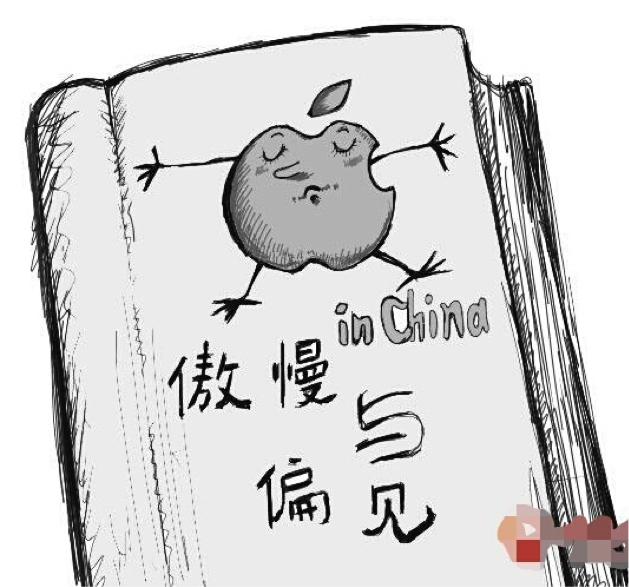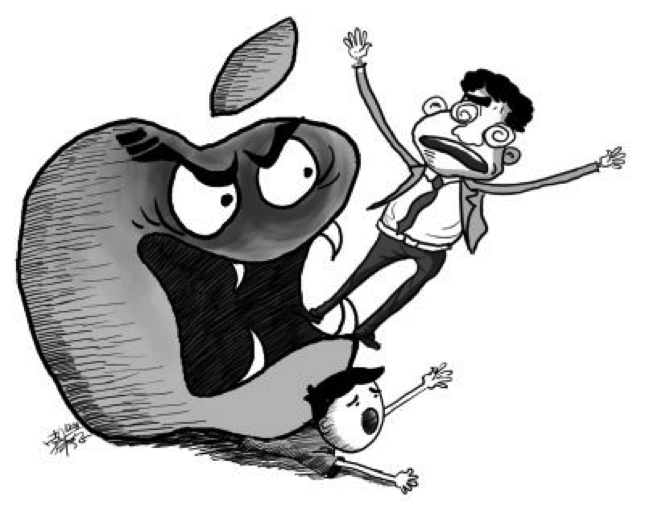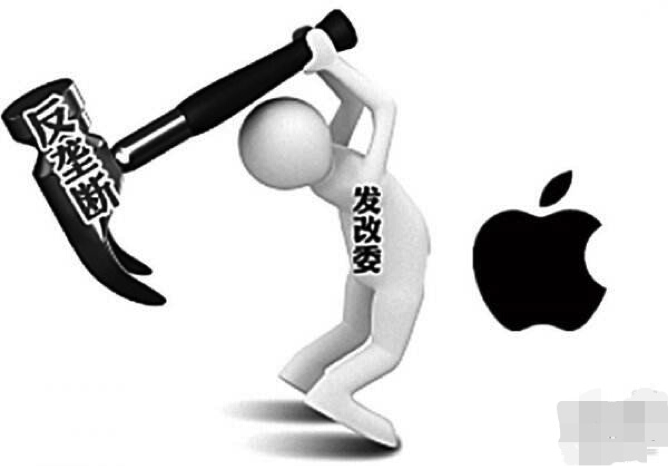Communications World Network News (CWW) – On September 5, the 8th China Patent Annual Conference, themed “Patents and Boosting the Development of the Real Economy,†kicked off in Beijing. However, one particular event during the conference sparked considerable debate: a heated exchange between Apple's legal representatives and Chinese patent holders. The situation escalated to the point where it seemed out of control, drawing attention from both attendees and industry observers. While this incident may have been unplanned, it also revealed some underlying tensions in the patent landscape.
Event Recap: Apple’s Legal Representatives Confront Chinese Patent Holders
According to reports, the key issue revolved around a public question posed by Apple’s lawyer during a speech by Cao Jun, CEO of Xidian Express. The lawyer, claiming to act as an “ordinary consumer,†questioned whether WAPI technology—embedded in national standards—was being fairly compensated when not actually used in mobile devices. He argued that it was unjust for companies like Apple to pay for a patented technology that wasn’t being utilized.
Cao Jun responded by stating that Apple had previously signed a patent licensing agreement with Xidian Jietong, which later expired. Despite two years of negotiations, no resolution was reached, leading Xidian Jietong to take legal action. In turn, Apple filed its own lawsuit, alleging anti-competitive behavior and requesting the court to set a licensing rate. This back-and-forth highlighted the complexity of patent disputes and the challenges faced by smaller companies when dealing with tech giants.
Apple also reportedly obtained confidential business information from Xidian Jietong through improper means in the U.S., further fueling controversy. Meanwhile, Apple claimed not to be using Xidian Jietong’s patents, even as the company sought to prevent a court-imposed injunction against infringement.
Analysis: A Public Challenge to Chinese Intellectual Property
The confrontation raised concerns about the ethics of lawyers questioning a corporate executive in a public forum. Many viewed the move as unprofessional and overly aggressive, especially given Apple’s history of assertive legal tactics. Some believe the lawyer was trying to rally support for Apple’s position in the ongoing litigation, rather than engaging in a genuine discussion.
Moreover, the lawyer’s claim that WAPI technology wasn’t used ignored a basic fact: if a feature is built into a device, it is effectively being used, regardless of user activation. Additionally, patent licensing fees are typically paid by manufacturers, not end users, and are a standard practice globally. This suggests that Apple’s challenge was more about cost-cutting than genuine concern over patent usage.

Broader Implications: Rising Chinese IP Awareness and Standards
The WAPI controversy reflects broader shifts in China’s approach to intellectual property. As a national standard developed by the Ministry of Industry and Information Technology, WAPI represents China’s growing technological sovereignty. Critics argue that foreign entities, particularly those representing Wi-Fi standards, have actively opposed WAPI, citing security concerns—a claim widely seen as politically motivated.
Industry insiders note that WAPI’s limited adoption in China isn’t due to inferiority but rather due to external pressure from the Wi-Fi Alliance. This has created a challenging environment for Chinese companies seeking to promote their own standards.
Public Reaction: Support for Chinese Innovation
Netizens expressed mixed opinions, with many supporting Chinese companies and criticizing Apple’s aggressive tactics. One comment noted that while Apple may be a global leader, it should not be allowed to dominate without regard for local laws and innovation. Others pointed out that Apple’s legal strategies often target smaller firms, dragging them into prolonged and costly battles they cannot afford.

Apple’s Dominance and Its Impact on the Industry
Apple’s long-standing dominance in the tech sector has drawn criticism for stifling competition. Recently, a group of Chinese lawyers and experts formally reported Apple to regulatory authorities, accusing it of monopolistic practices in the App Store. Many developers and companies support these claims, highlighting the need for fairer treatment in the digital ecosystem.
Apple’s strategy of delaying payments and then suing for patent infringement has been widely criticized. Smaller companies often lack the resources to fight such legal battles, resulting in settlements or forced concessions. Even major players like Samsung and Qualcomm have faced similar challenges, though they are better equipped to handle the legal pressure.

Conclusion: Balancing Innovation and Fairness
While Apple remains a powerhouse in innovation, its actions raise important questions about fairness, transparency, and respect for intellectual property rights. The recent incident highlights the need for stronger legal frameworks that protect both large corporations and smaller innovators. As China continues to strengthen its IP protection, it is crucial that global players like Apple adapt to these new realities and engage in more equitable business practices.
100V eVtol Battery,100V Battery Pack,100V Battery,100 eVolt Battery
Shenzhen Jentc Technology Co., LTD , https://www.phenyee.com